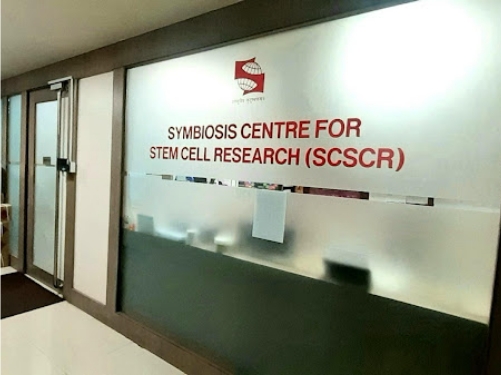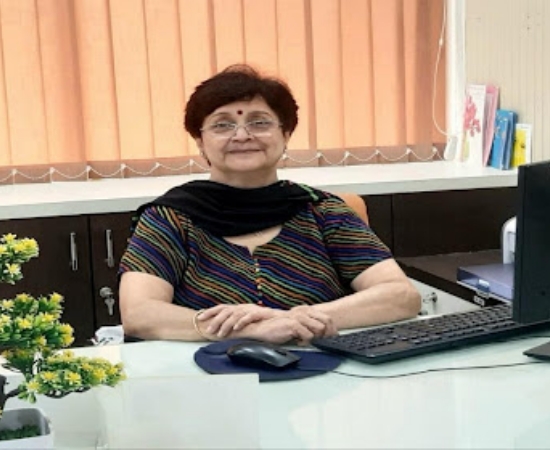







Symbiosis Centre for Stem Cell Research (SCSCR) was established as a new initiative of Symbiosis International (Deemed University) on 29th July 2016. SCSCR is located at the hill base campus within Symbiosis School of Biological Sciences (SSBS), under the Faculty of Medical and Health Sciences (FoMHS). The centre is a unique research centre in Pune that will perform research exclusively on stem cells.
SCSCR was established to initiate both fundamental and translational research in various aspects of stem cell biology, which will eventually be complementary to the activities of Symbiosis University Hospital and Research Centre (SUHRC). The centre has initiated several research projects on hematopoietic stem cells (HSCs), mesenchymal stem/stromal cells (MSCs), human pluripotent stem cells (hESCs), endometrial organoids, and bone- and cartilage-specific stem cells. SCSCR has state-of-art equipment to facilitate research of internationally accepted standards. We also have expert faculty members who are recognized doctoral guides of SIU.
The goal of this centre is to develop SCSCR as one of the leading centres in India for carrying out fundamental research that may have translational implications in the field of stem cell biology.
Symbiosis International (Deemed University) is a multi-disciplinary university offering its students and faculty a vibrant learning ecosystem designed around its multi-cultural and innovative ethos. Established in 1971 by Prof. Dr. S.B. Mujumdar,it is a ‘home away from home’ for International students. The Institution is based on the principles of Vedic thought of "World as One Family".The University's name fittingly captures the quintessence of the relationship with International students; a mutually beneficial bond between India and the International student community. Symbiosis is committed to building international understanding by offering quality education, and is resplendent of the activities and students of more than 85 countries
Promoting international understanding through quality education

Welcome to Symbiosis Centre for Stem Cell Research (SCSCR) at Symbiosis International (Deemed University). SCSCR is strategically located in Symbiosis School of Biological Sciences (SSBS), providing an ideal ecosystem for the interaction of SCSCR faculty with the faculty members of SSBS. Most importantly, the location of SCSCR at the hill base campus, opposite the multi-specialty Symbiosis University Hospital & Research Centre (SUHRC), helps in bridging the gap between laboratory research and clinical practices.
SCSCR has state-of-art equipment like fluorescence-activated cell sorter (FACS), fluorescence apotome microscope, ultra-centrifuge, real-time PCR, etc. to facilitate high-end fundamental research at both cellular and molecular level. In addition to the substantial internal funding, SCSCR has received seven research grants from government funding agency Department of Biotechnology (DBT). We have established several national and international collaborations with esteemed institutes and organizations such as DBT- National Centre for Cell Sciences (DBT-NCCS), ICMR-National Institute for Research in Reproductive & Child Health (ICMR-NIRRCH), Gupte hospital, Symbiosis University Hospital and Research Centre - Symbiosis Medical College for Women (SUHRC-SMCW), C-MET, CSIR- National Chemical Laboratory (CSIR-NCL), Ashton University, Indian Centre for Endometriosis, and Nottingham Trent University.

At SCSCR, we do research on all types of stem cells such as hematopoietic stem cells (HSCs), mesenchymal stem/stromal cells (MSCs), bone- and cartilage-specific stem cells, endometrial stem cells, as well as on induced pluripotent stem cells (iPSCs) and embryonic stem cells (ESCs). We also work in the area of “biomaterials and tissue engineering,” which complements our work on different types of adult stem cells, especially in the broad area of tissue regeneration.
We would be happy to support applications of faculty and students to apply for national as well as international fellowships.